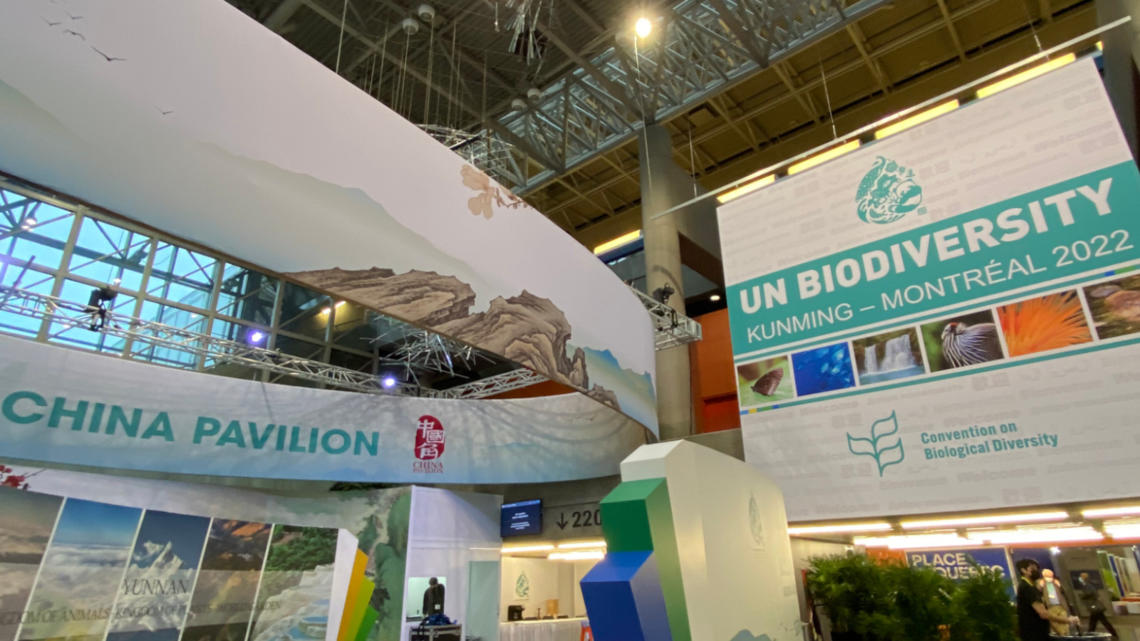Montreal, 9 December 2022: The Business Handbook for Biodiversity Conservation and the Business Biodiversity Conservation Cases, jointly compiled by World Business Council for Sustainable Development (WBCSD) and its partners, were launched on 9 December at China Pavilion Side Event “Accelerating Business Actions in China for Biodiversity Conservation” was held at the second phase of COP15 in Montreal, Canada.
The side event was co-organized by the Environmental Education and Communications (CEEC) of the Ministry of Ecology and Environment of China, WBCSD, World Wide Fund for Nature (WWF), Business for Nature (BfN), and Society of Entrepreneurs and Ecology, focusing on the concept of “lucid waters and lush mountains are invaluable assets” and the practical experience of businesses participating in biodiversity conservation. Business leaders and delegates around the world attended the side event to discuss the challenges faced by enterprises in biodiversity conservation, share successful experiences, and provide Chinese wisdom and experience to the global business community.
The preparation of the Business Handbook for Biodiversity Conservation was guided by the Environmental Education and Communications (CEEC) of the Ministry of Ecology and Environment of China and supported by the World Business Council for Sustainable Development (WBCSD), Business for Nature (BfN), World Wide Fund for Nature (WWF), Shenzhen One Planet Foundation, International Union for Conservation of Nature (IUCN), Society of Entrepreneurs and Ecology and the Hubei Yangtze River Ecological Protection Foundation.
The Handbook is divided into four parts, which introduce the value of biodiversity, its current situation and its relationship with business activities, the background, importance and necessity of business engagement in biodiversity, the core steps of business engagement in biodiversity conservation, and the latest trends of businesses in biodiversity conservation.
The Business Biodiversity Conservation Cases contains 23 best practices selected from hundreds of companies around the globe. The case studies are selected from different industries and sizes, aiming to provide diversified conservation pathways, highlight feasibility, and allow enterprises to exchange and learn from each other. The Cases also include more practical actions with an open attitude and record the sustainable transformation process of businesses.
The side event also launches the CEO video Leading Voice for Nature. Ten “Nature Ambassadors” who are pioneers in nature conservation show their commitment as business leaders to biodiversity conservation and call on more companies to participate in biodiversity conservation.
Tian Chengchuan, General Director of Center for Environmental Education and Communications (CEEC) of the Ministry of Ecology and Environment of China, said that enterprises are essential participants in the building of ecological civilization. The sustainable transformation of enterprises is a vivid practice of ecological civilization. On the one hand, leading enterprises can strengthen their concepts and technological innovation by playing a synergistic role in the industry and forming replicable and replicable experiences. On the other hand, they can become the industry benchmark and tell the story of ecological civilization by building a brand of ecological and environmental enterprises.
Zhou Weidong, Director of WBCSD China, expressed his hope that global businesses should take COP15 as a new starting point and work together for a transformative “post-2020 global biodiversity framework”, contribute to the building of China’s ecological civilization and reverse the global nature loss, continue to accelerate their efforts in biodiversity conservation, and innovate in biodiversity conservation. We will continue to accelerate our innovation and practice in biodiversity conservation to achieve a win-win situation for both conservation and development.


